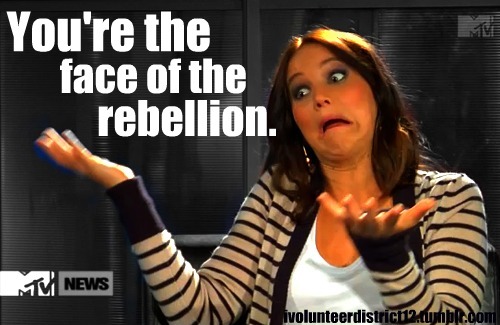The tutorial on writing women continues!
Who is she?
Now that your female character has her sexual orientation, beliefs, and possibly her career picked out, let's talk about her background. Is she an orphan? A super-powerful young girl being fought over by two factions? The Only Hope for Humanity? An embittered assassin or thief, a-la Catwoman? A princess? In love with someone outside her species/social rank/temporal bubble?
If some or all of these are true, you might have to crumple up your sheet and start again. They've all been done to death. We're bored. Oh, sure, you can write them, but you're going to need to go either balls-deep (or vag-deep, or ass-deep) and just RUN with that cliche in a self-aware way, or you're going to have to do some rewrites. In addition to reinforcing bad ideas--that women exist to serve men, that women are only powerful when they're young/cute/harmless otherwise, or that sex ruins women--those cliches are boring as phuque. We've heard them all before. We're done. Give us something different.
A brief word on a thing you shouldn't do, probably
Now, another tricky topic--in addition to careers, sexual orientation, and etc, let's talk about a common plot device. If I had a dollar for every time I've read about a female character with sexual assault in her history or during the story, I would have a lot more tacos. Rape is a common trope used to make a character traumatized or tougher. Stop it. Just stop. I don't care how justified you think it is; cut it out. I'm not saying rape should never be written about; quite the opposite. Rape is hard to write about. If you do it properly, it will hurt you as an author and you'll be crumpled up in a ball of feels after you put your character through it. (Ask me how I know.) However, if you need a way to toughen your female character and show trauma in her past, be more goddamn creative. Car accident! Cat that exploded! Lost family member or best friend! These are just scraping the surface. You can do better than tossing in a cheap sideline rape. We'll be talking about that at length in a post down the line.
Some authors may be leaning forward, scrolling in consternation and trying to hold back a sense of panic; others may be leaning back cockily and saying, "ah, yes, but in MY story all of this is necessary!" I don't care what your identity is or what you've got between your legs. If you have a rebellious princess who has a super magical power and is embittered towards her father and still getting over a close-but-not-actual sexual assault that doesn't violate her purity, and if she 'does her own thing' and has several guys (and possibly girls) fawning over her, your book sucks. If you can make all that work, either you are a genius of parody, or you're deluding yourself. There's a small possibility it does work, but I'm not holding my breath.
"Ah," some authors may say, "but my work is literary! It--"
No. Shut up. Quality standards exist for a reason.
"Ah, but my characters defy social conventions!"
Okay, I'm listening.
"In her setting, she's really different for rebelling! She's--"
Is she a human plot device? If she was replaced with a talking lamp, would the story change? No? Shut up.
"But these are basic mistakes! Only really bad authors--" No, they don't. These can happen to the most well-intentioned or practiced authors if they don't pay attention. Don't fall asleep at the watch! It's easy to be sloppy with characters. I'm not saying this makes you a bad person, if you do these. I will willingly cop to a lot of them myself, especially in early drafts. After a while, too, it's easier to move away from tropes and cliches, but they will sneak in!
 |
Source. Katniss is actually a good character because her actions contain internal logic and are self-consistent. |
Rebel, Rebel
So, how can you make your character a rebel? The social class thing isn't a bad idea. You can play with gender and ethnicity. I was reading The Night Circus recently and noticed that Morgenstern avoided mentioning black people or ethnicity entirely. Not only was it an infuriating inaccuracy given the culture of circuses and sideshows of the era, it cut out some intriguing possible plotlines. Remember, you can make your character a person of colour, queer, or variously abled/challenged, and it doesn't have to make them less 'normal'. If anything, it makes them more normal.
Still not content? Okay, consider your character's circumstances. Why are they rebelling? Do they want to go against society? Is your character an anachronism in a fantasy setting,or is she part of a movement? Is she perhaps conservative? If so, why? Make sure the internal logic of the character holds up outside the story. If her actions make no sense, your audience will be confused and angered.
Okay, so, making sense so far? Tune in next time for more tips!
*****
Thanks for dropping by the nest once again. Don't miss any of the phuquerie. Find Michelle on Twitter, Facebook, and on Tumblr, and find her work on Amazon. Check back on the blog to see when one of the irregular posts has careened onto your feed. This is the one and only SciFiMagpie, over and out!

... braswomen.blogspot.com
ReplyDelete